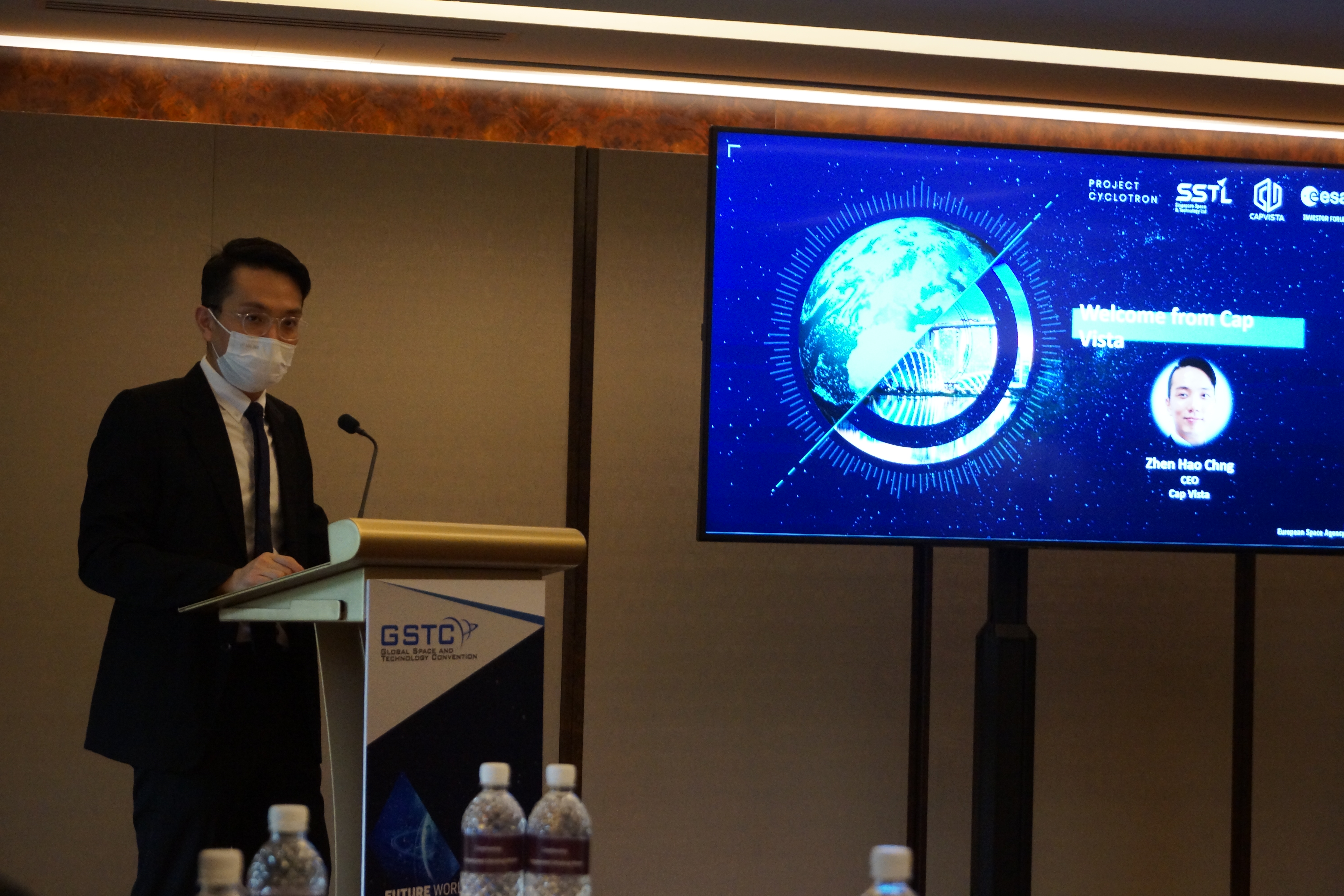ESA – Project Cyclotron Investor Forum in anticipation of GSTC 2022
 Together with Project Cyclotron, a joint venture between Cap Vista Ltd and Singapore Space & Technology Ltd. (SSTL), ESA Space Solutions organised a special Investor Forum. 13 innovators presented their ventures to a group of 30 European and Asian Investors. This collaboration is a first step towards facilitating access to new markets to European space innovation.
Together with Project Cyclotron, a joint venture between Cap Vista Ltd and Singapore Space & Technology Ltd. (SSTL), ESA Space Solutions organised a special Investor Forum. 13 innovators presented their ventures to a group of 30 European and Asian Investors. This collaboration is a first step towards facilitating access to new markets to European space innovation.
As part of the events organised under the Global Space and Technology Conference (GSTC), ESA in partnership with Project Cyclotron (a joint venture between Cap Vista Ltd (the strategic investment arm of Singapore’s Defence Science and Technology Agency) and Singapore Space & Technology Ltd (SSTL)) hosted a special edition of the ESA Investor Forum.
Thirteen ventures of both ESA and Project Cyclotron’s portfolio pitched their innovations to a group of 30 European and Asian investors. The event ran on a hybrid format, live, and remote pitching, showcasing a variety of upstream technologies, downstream services, materials as well as technology transfer. It demonstrated that space could power any vertical market.
Frank Salzgeber, Head of Innovation and Ventures at ESA said “Supporting start-ups and scale-ups growth is also part of our job. The Singaporean ecosystem offers great opportunities. Project Cyclotron and SSTL are great partners for this journey.”
Zhen Hao Chng, CEO of Cap Vista added "We endeavour to build up the deep tech ecosystem in this region, comprising not just the start-ups but also global deep tech investors looking to invest in this region. ESA possesses unique investor networks and corporate inroads for our startups to scale globally and is a natural partner for us."
Both ESA and Project Cyclotron expressed their excitement about the results of the investment forum. Both partners expressed their intention to continue working together in the future for the benefit of space-related innovation.


